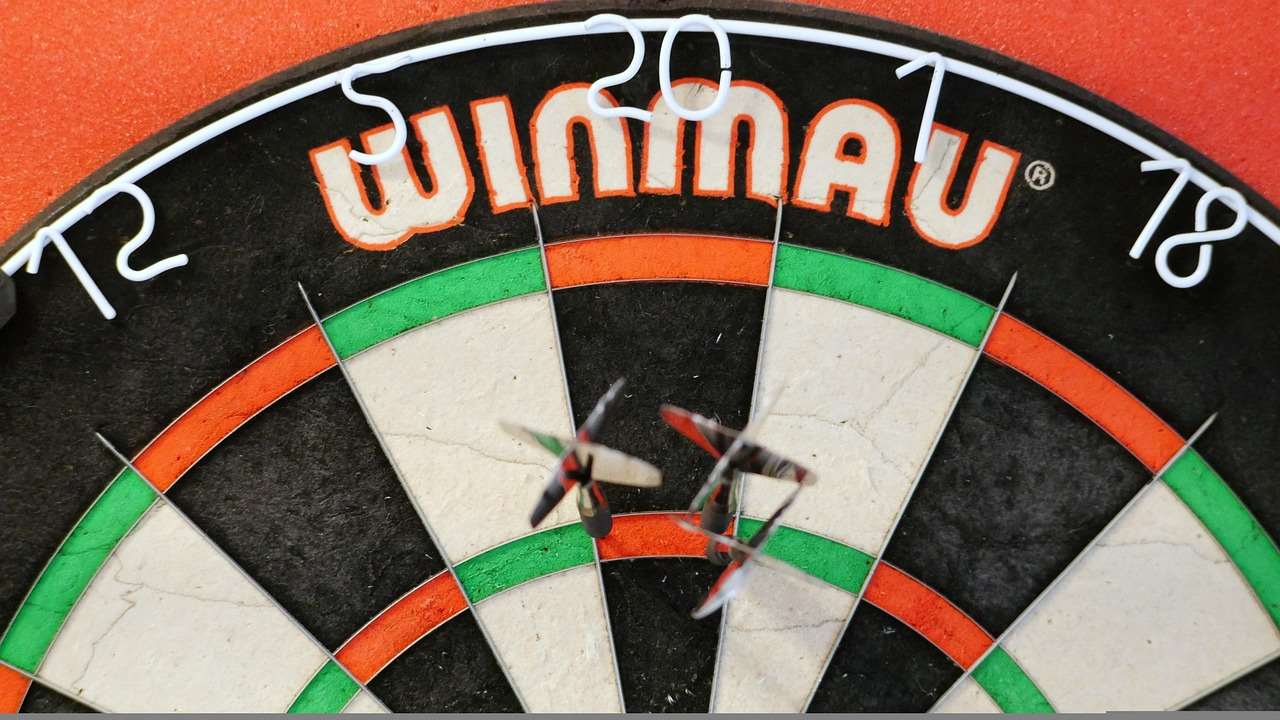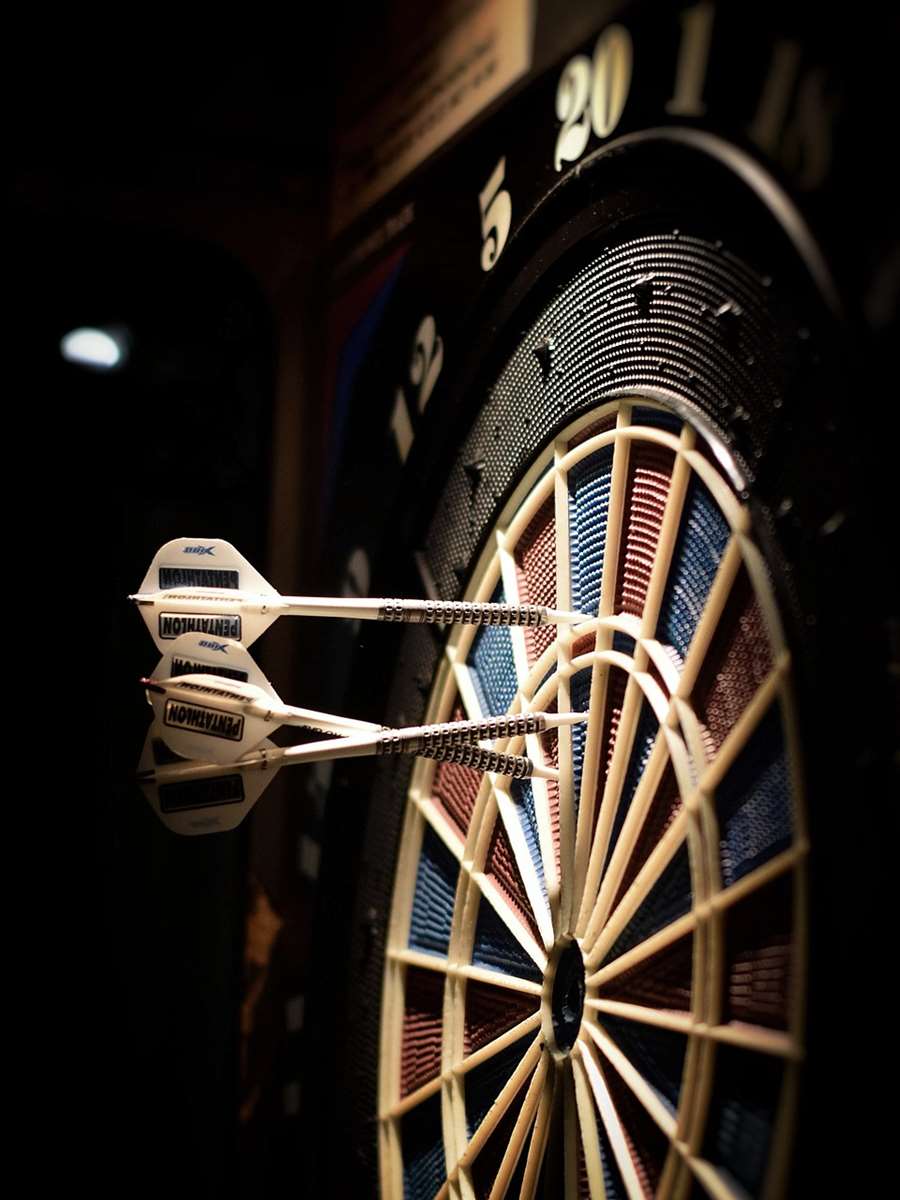The darts tour alcohol sponsorship debate revolves around a central question: Does the long-standing association between darts and alcohol brands promote responsible behavior, or does it contribute to harmful drinking culture? This article explores the complexities of this issue, examining the arguments for and against such sponsorships, the potential impact on public health and the sport’s image, and alternative funding models for professional darts.
⚠️ Still Using Pen & Paper (or a Chalkboard)?! ⚠️
Step into the future! The Dart Counter App handles all the scoring, suggests checkouts, and tracks your stats automatically. It's easier than you think!
Try the Smart Dart Counter App FREE!Ready for an upgrade? Click above!
Understanding the Darts Tour Alcohol Sponsorship Debate
For decades, alcohol brands have been prominent sponsors within professional darts. From logo placements on players’ shirts to tournament naming rights, the connection seems inseparable. However, increasing concerns about the promotion of alcohol consumption, especially to younger audiences, have fueled the darts tour alcohol sponsorship debate. The core of the issue lies in balancing the financial benefits of these sponsorships with the potential health and societal costs. It’s vital to understand the nuances to form an informed opinion.

The History of Alcohol Sponsorship in Darts
The relationship between darts and alcohol is deeply ingrained in the sport’s history. Pub culture was the birthplace of darts, and alcohol brands naturally gravitated towards sponsorship opportunities as the sport professionalized. This established a tradition that continues to this day. Early sponsorships were relatively unregulated, leading to a more overt association between drinking and playing.
The Arguments For Alcohol Sponsorship in Darts
Proponents of alcohol sponsorships argue that these partnerships are essential for the financial stability of the sport. Without this revenue, prize money, tournament organization, and player support could be significantly reduced. They also emphasize that responsible drinking is always promoted and that adults should be free to make their own choices. Here are some key arguments:
- Financial Necessity: Sponsorships provide crucial funding for tournaments and players.
- Responsible Consumption Messaging: Sponsors often include responsible drinking messages in their advertising and promotions.
- Adult Choice: Adults should have the freedom to enjoy alcohol responsibly and associate it with leisure activities like watching or playing darts.
- Longstanding Tradition: The link between darts and alcohol is a deeply rooted part of the sport’s history and culture.
Furthermore, some argue that banning alcohol sponsorships could simply drive viewers to seek out unofficial streams or platforms where alcohol advertising is not regulated, potentially undermining efforts to promote responsible drinking. It’s also important to consider the Business of Darts and how sponsorship affects the overall sport.
The Arguments Against Alcohol Sponsorship in Darts
Opponents of alcohol sponsorships raise concerns about the potential negative impact on public health, particularly among young people. They argue that these sponsorships normalize alcohol consumption and can contribute to harmful drinking habits. The arguments include:
- Normalization of Alcohol Consumption: Associating darts with alcohol normalizes drinking, especially for younger viewers.
- Potential for Harmful Drinking Habits: Sponsorships can encourage excessive or irresponsible alcohol consumption.
- Vulnerability of Young Audiences: Children and adolescents are particularly susceptible to the influence of alcohol advertising.
- Ethical Concerns: Some argue that it is unethical for a sport to profit from promoting a product that can be harmful to health.
Critics also point to the potential for alcohol sponsorships to damage the image of darts as a professional sport. They believe that it perpetuates negative stereotypes and hinders efforts to promote a healthier, more inclusive environment. The darts tour alcohol sponsorship debate is not just about money; it’s about ethics and responsibility.
The Impact on Public Health and Youth
One of the most significant concerns in the darts tour alcohol sponsorship debate is the potential impact on public health, particularly the drinking habits of young people. Studies have shown that exposure to alcohol advertising can influence attitudes and behaviors related to alcohol consumption, especially among adolescents. These studies underscore the importance of considering the potential consequences of alcohol sponsorships in sports, which often have a significant youth following.

Critics argue that seeing their favorite darts players prominently associated with alcohol brands can normalize drinking for young fans and make them more likely to experiment with alcohol at an earlier age. This concern is amplified by the fact that darts is often viewed as a family-friendly sport, making the association with alcohol even more problematic.
Exploring Alternative Sponsorship Models
If alcohol sponsorships were restricted or banned, the question becomes: what are the alternative funding models for professional darts? Several options exist, ranging from sponsorships from other industries to increased reliance on broadcasting revenue and fan engagement.
- Sponsorships from Other Industries: Companies in the technology, automotive, financial services, and food and beverage (non-alcoholic) sectors could be potential sponsors.
- Government Funding: Some sports receive government funding to support their development and promotion.
- Increased Broadcasting Revenue: Negotiating better television and streaming deals can generate more revenue for the sport. See darts tv rights value for a deeper dive.
- Fan Engagement and Merchandise: Increased merchandise sales, ticket revenue, and fan engagement initiatives can contribute to the sport’s financial stability.
Diversifying revenue streams can make darts less reliant on alcohol sponsorships and more resilient to potential regulatory changes.
Responsible Drinking Campaigns and Education
Even with alcohol sponsorships in place, there is a growing emphasis on promoting responsible drinking through education and awareness campaigns. Alcohol brands often include responsible drinking messages in their advertising and promotions, and some darts organizations have partnered with charities to promote responsible consumption.
However, critics argue that these campaigns are often insufficient to counteract the overall effect of alcohol advertising, which is primarily focused on promoting consumption rather than moderation. They believe that more comprehensive and independent educational initiatives are needed to address the root causes of harmful drinking.
The Role of Regulatory Bodies
Regulatory bodies play a crucial role in determining the future of darts tour alcohol sponsorship debate. These organizations are responsible for setting advertising standards, regulating alcohol consumption, and protecting public health. They must carefully consider the evidence and weigh the competing interests of the sport, the alcohol industry, and the public. A lot of the industry is supported by how how darts media deals work.

Some countries have already implemented stricter regulations on alcohol advertising in sports, while others have taken a more lenient approach. The effectiveness of these different approaches is a subject of ongoing debate and research.
International Perspectives on Alcohol Sponsorship in Sports
The darts tour alcohol sponsorship debate is not unique to any one country or region. Similar debates are taking place around the world in various sports, from football and rugby to cricket and motorsports. Different countries have adopted different approaches to regulating alcohol sponsorships, reflecting varying cultural norms, public health priorities, and economic considerations. Understanding these international perspectives can provide valuable insights into the potential consequences of different policy choices. Sponsorship can depend on the ITV darts broadcast deal, which may limit what brands can be promoted on screen.

The Future of Darts Sponsorship
The future of darts sponsorship is uncertain. As public awareness of the potential harms of alcohol consumption grows, pressure on sports organizations to reduce or eliminate alcohol sponsorships is likely to increase. This could lead to a gradual phasing out of such partnerships or a complete ban, similar to what has happened with tobacco sponsorships in many sports.
Regardless of the outcome, it is clear that the darts tour alcohol sponsorship debate will continue to be a significant issue for the sport in the years to come. The key will be finding a balance that protects public health, supports the financial viability of darts, and promotes responsible behavior. The overall direction of this depends on negotiation darts tv rights with various broadcasting companies.
Finding a Sustainable Path Forward
The path forward for darts lies in embracing a more sustainable and responsible approach to sponsorship. This requires a multi-faceted strategy that includes:
- Diversifying Sponsorship Revenue: Actively seeking sponsorships from a wider range of industries.
- Investing in Responsible Drinking Campaigns: Developing and implementing comprehensive educational initiatives.
- Strengthening Regulatory Oversight: Working with regulatory bodies to establish clear and consistent advertising standards.
- Engaging with Fans and Stakeholders: Openly communicating with fans, players, sponsors, and other stakeholders to build consensus around a shared vision for the future of the sport.

By taking these steps, darts can ensure its long-term sustainability while also promoting a healthier and more responsible image.
Conclusion
The darts tour alcohol sponsorship debate is a complex issue with no easy answers. Balancing the financial needs of the sport with the potential health and societal costs of alcohol advertising requires careful consideration and a willingness to explore alternative solutions. As public awareness of the harms of alcohol consumption grows, the pressure on darts organizations to move away from alcohol sponsorships is likely to increase. By embracing a more sustainable and responsible approach to sponsorship, darts can ensure its long-term viability and promote a healthier image for the sport. Consider the points raised here and research further to form your own informed opinion on the darts tour alcohol sponsorship debate. Now, share this article with your friends and family and let them know your stance!
Hi, I’m Dieter, and I created Dartcounter (Dartcounterapp.com). My motivation wasn’t being a darts expert – quite the opposite! When I first started playing, I loved the game but found keeping accurate scores and tracking stats difficult and distracting.
I figured I couldn’t be the only one struggling with this. So, I decided to build a solution: an easy-to-use application that everyone, no matter their experience level, could use to manage scoring effortlessly.
My goal for Dartcounter was simple: let the app handle the numbers – the scoring, the averages, the stats, even checkout suggestions – so players could focus purely on their throw and enjoying the game. It began as a way to solve my own beginner’s problem, and I’m thrilled it has grown into a helpful tool for the wider darts community.